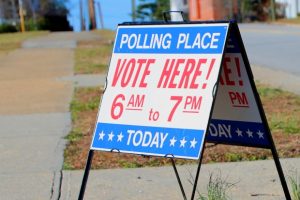Measure M Wins L.A. Marijuana Licensing in Election
Measure M, a bill proposed by the City of Los Angeles that gives council the authority to regulate the local recreational and medical marijuana industries was overwhelmingly approved recently.
Measure M won over big in comparison to the votes garnered for another, Measure N, which was placed onto the ballot by a marijuana trade group that later swung its support behind the city’s proposal.
The bills were placed on the ballot in response to the November results in the state election that legalized marijuana for recreational purposes, beginning next year. Measure M gives the city the authority to repeal the current ban on medical marijuana dispensaries (Proposition D, passed in 2013), and replace it with updated rules that will regulate the varying kinds of marijuana businesses in Los Angeles. Additionally, the measure grants city leaders the power to enforce these rules, including imposition of fines, criminal penalties and loss of utilities like water and power for companies that flout city rules or try to operate unlicensed. Continue reading
 Cannabis Law Group's Medical Marijuana Legal Blog
Cannabis Law Group's Medical Marijuana Legal Blog












 There were also various changes to the medical marijuana laws when Proposition D was passed into law in 2013, and this resulted in the closure of over 700 dispensaries within city limits, as well as the shutting down of two major mobile dispensary services in which medical marijuana patients could order marijuana on their smartphones and have it delivered to their homes or places of business.
There were also various changes to the medical marijuana laws when Proposition D was passed into law in 2013, and this resulted in the closure of over 700 dispensaries within city limits, as well as the shutting down of two major mobile dispensary services in which medical marijuana patients could order marijuana on their smartphones and have it delivered to their homes or places of business.  In the District of Columbia, recreational marijuana is legal to use and buy, but thanks to a congressional amendment to a recent budget measure, is illegal to sell. This was allowed to happen because Congress has much more control over the federal district than it does over a state despite a decades old decision to all for home rule in the city. As a result of it being illegal to sell marijuana, it is also illegal to hold what Congress calls a marijuana party or event. This makes things a bit complicated for those trying to get into the marijuana industry, but there are some ways around the prohibition.
In the District of Columbia, recreational marijuana is legal to use and buy, but thanks to a congressional amendment to a recent budget measure, is illegal to sell. This was allowed to happen because Congress has much more control over the federal district than it does over a state despite a decades old decision to all for home rule in the city. As a result of it being illegal to sell marijuana, it is also illegal to hold what Congress calls a marijuana party or event. This makes things a bit complicated for those trying to get into the marijuana industry, but there are some ways around the prohibition.